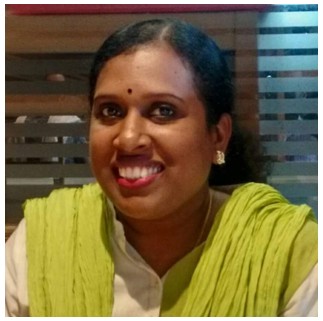“I was 16 and was going through the most difficult time I could ever imagine. I had decided to end it all. It felt like nobody could have helped me hence I kept it all to myself.”
When you’re that young, you don’t get that there’s no coming back, or if you do, you’re like, why would I want to come back from this? It’s really difficult to see the bigger picture then. “I am just glad I sought help and didn’t become a statistic.”
It’s natural for many to wonder “what causes suicidal thoughts?” after all life is supposed to be celebrated. If we take the example of a physical ailment like heart disease there are multiple risk factors like biological, stress, the environment, lifestyle and habits like smoking, eating habits etc., To this effect suicide is a behavioral manifestation of a complex set of factors which are seldom discussed or addressed.
My Experience with the Taboo
In my experience as a mental health professional, suicide is not about ending life, rather the ending of pain. My practice has been riddled with people holding grave misconceptions about mental health adding to the challenge of supporting a distressed individual.
The following is a broad representation of conversations I have had with individuals, families and companies over the years, showcasing the unreadiness to broach the topic of suicide.
• “She is doing it for attention”
• “He never showed any signs”
• “Only people with mental illness have suicidal thoughts, not others/me/or my family”
• “Why should I talk about suicide and give ideas to people”
• “Our safety policy does not allow us to talk or even say the “S” word”
However, numbers paint a different picture.
WHO states “Globally, close to 8,00,000 people die by suicide every year; that’s one person every 40 seconds. For each suicide, there are more than 20 suicide attempts”. The average suicide rate in India is 10.9 for every lakh people and the majority of people who commit suicide are below 44 years of age.
As a practice at 1to1help, we often ask callers – “Due to this concern have you thought of harming yourself or ending your life?”. We did see a rising trend of “yes” to this question, leading us to put in appropriate measures to support these individuals. Many clients, their families and sponsors shared how this approach helped them share their experience more freely.
Talking about the Taboo
While the pandemic has played largely a destructive role in our lives, it also brought to forefront the importance of mental health and well-being. An instance I would like to share here is from an online mother’s group that I am part of, I see an influx of queries and posts about counselling and therapist recommendations. This is a great step towards furthering the conversation.
At 1to1help.net we have seen a doubling of the number of critical callers, while jarring, this is a positive trend towards discussing one’s mental health concerns.
Although there is a significant change in the number of people talking about mental health and illness in general, suicide still remains highly stigmatized. We have been taught to treat suicide as “the unspeakable”. It is hard to help people with suicidal thoughts and for them to ask for help, if we treat suicide as if it is another dark dirty word.
Embracing the Taboo
We have to act now, or suicide rates will continue to soar and overwhelm us. It’s time that we take swift action and start having real conversations about mental well-being and suicide.
Mental health is not taboo. In truth, most people have suffered from a mental health issue at one point in their life. But the stigma surrounding mental health keeps people from seeking the treatment they need, to be able to cope and lead a fulfilling life.
Many people worry that mentioning suicide to someone may encourage suicide attempts or self-harm. Talking about suicide will not put the idea in someone’s mind, but it will make the topic more approachable.
Furthermore, individuals who have been experiencing suicidal thoughts will often say it’s a relief to be able to discuss what they were experiencing. Don’t be afraid about listening to someone who shares suicidal thoughts or feels threatened when there is radio silence.
Silence can often be a stepping stone to encourage a person to share. Be prepared to signpost them to more qualified sources of help. You are not expected to be their counsellor, therapist or confidante.
It’s however important that you do your bit in being present, listening, being empathetic, showing concern and respect to encourage sharing and understanding of mental health at the workplace.
Are you ready to embrace the taboo?

Aruna Arumugam
(Vice President – Client Care (Counselling) at 1to1Help.)





